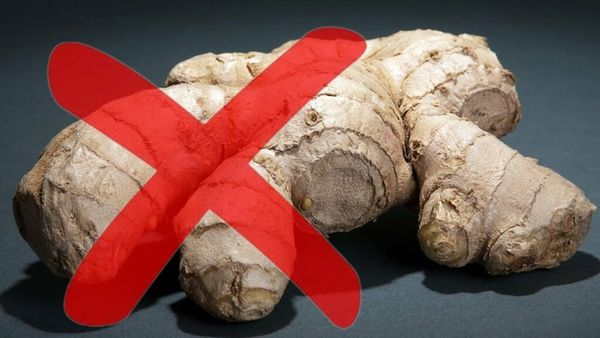
Ginger is a beloved spice that adds flavor to many dishes and offers several health benefits. However, there are particular situations where it may not be the best choice. Here’s a friendly guide to help you determine when to think twice about using ginger.
1. Blood Thinning Issues
While ginger’s blood-thinning properties can be beneficial for some, it can be risky for individuals taking blood-thinning medications like warfarin or aspirin. Combining ginger with these medications may increase the risk of bleeding. If you’re on any blood thinners, it’s wise to consult with your doctor before incorporating ginger into your diet.
2. Gallstones
Ginger stimulates the production of bile, which aids in digestion. However, for those with gallstones, increased bile production can lead to discomfort and complications. If you have gallstones, it may be better to limit your ginger intake to avoid triggering painful episodes.
3. Low Blood Pressure and Heart Conditions
While ginger can lower blood pressure, which is beneficial for many, it also carries the risk of dropping blood pressure too low or interfering with heart medications. If you already have low blood pressure or certain heart conditions, it’s essential to check with your healthcare provider before consuming ginger.
4. Pregnancy
Ginger is often recommended to alleviate morning sickness during pregnancy. However, consuming high amounts of ginger, especially close to labor, can raise concerns as it may increase the risk of bleeding. Pregnant women should use ginger sparingly and always consult with their medical professional for guidance.
5. Sensitive Stomach
While ginger can help with digestive issues, it can also irritate the stomach lining if consumed in large quantities. If you have a sensitive stomach or conditions like peptic ulcers, ginger may worsen your symptoms. It’s best to use ginger in moderation or explore alternative options that agree with your digestive system.
Here are a few tips to enjoy ginger safely:
- Consult Your Doctor: Always talk to your healthcare provider about incorporating ginger into your diet, especially if you have existing health conditions.
- Start Small: If you’re new to ginger, begin with small amounts to observe how your body reacts.
- Consider Alternatives: If ginger isn’t suitable for you, explore other spices or seek advice from a nutritionist for suitable alternatives.
Ginger has numerous benefits, but it’s crucial to use it wisely, considering your personal health conditions. By taking the right precautions, you can savor the flavors and benefits of ginger without any concerns.




